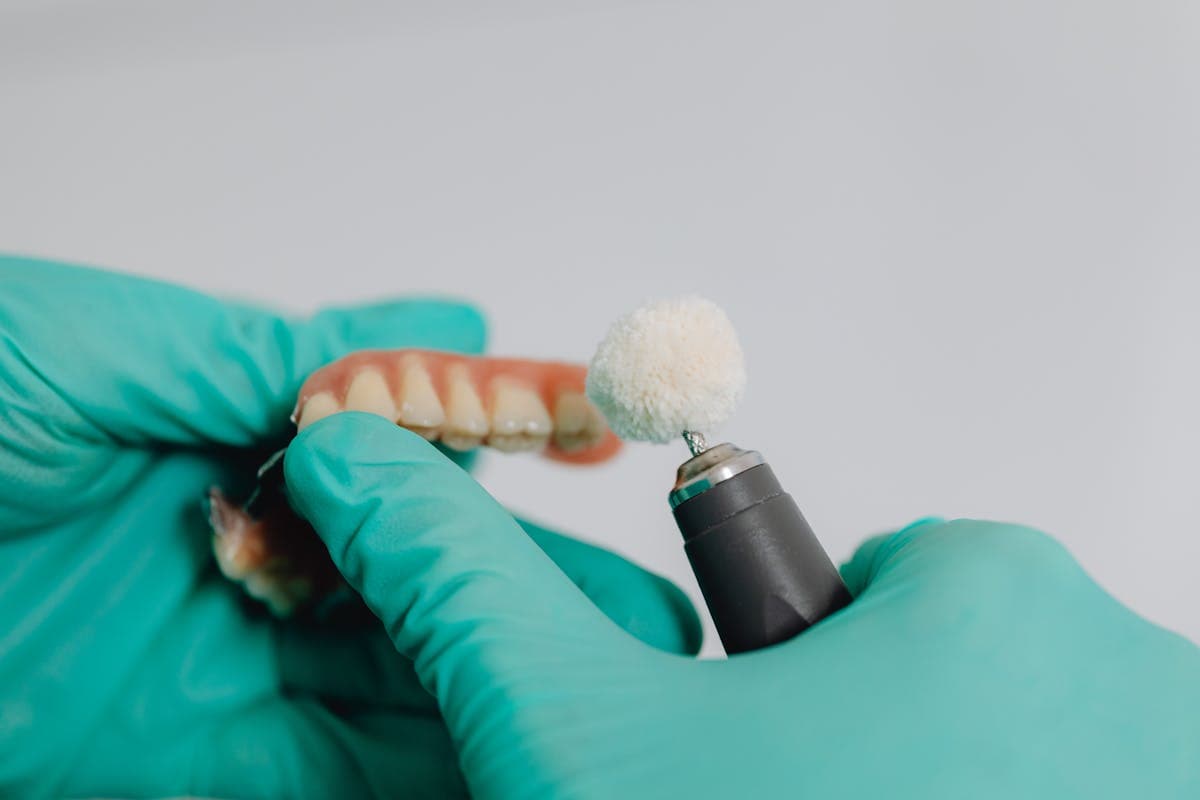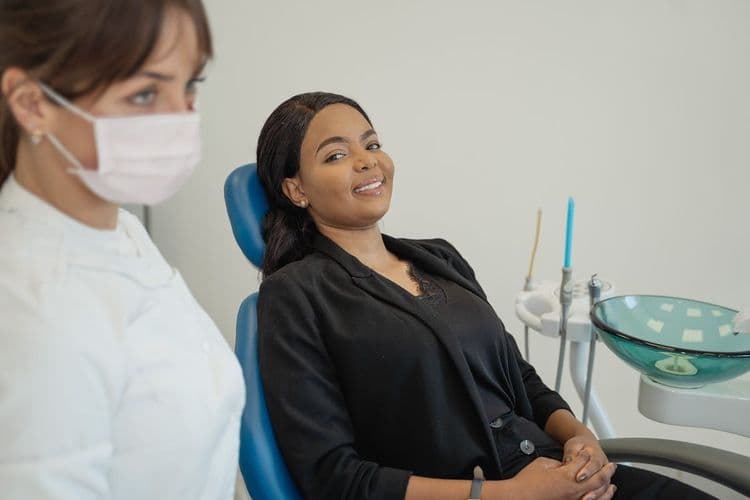Edentulism poses various functional and psychosocial challenges, including compromised mastication, altered phonetics, and diminished self-image. Dentures, as prosthetic devices, aim to mitigate these issues by restoring oral function and aesthetics. The change period involves physiological and psychological adjustments, requiring adaptive strategies. Despite initial obstacles such as discomfort and altered sensation, the long-term benefits of dentures extend beyond oral health, enhancing overall quality of life. Explore how this transformation occurs and its profound implications.
Understanding the Decision to Get Dentures
Why do individuals opt for dentures? The decision often stems from edentulism, where natural teeth are absent. Dentures offer a functional and aesthetic solution, allowing for improved mastication and speech articulation. Clinically, there are several denture types: complete dentures for total tooth loss and partial dentures for patients with some remaining dentition. Each type necessitates specific clinical assessments and fabrication techniques to guarantee ideal fit and function.
Financial considerations play a significant role in the decision-making process. Dentures are less expensive compared to dental implants, offering a more accessible option for patients. Additionally, insurance coverage and potential long-term maintenance costs influence patient choices. Evidence-based studies highlight that the affordability of dentures often dictates their preference over more costly restorative alternatives.
Preparing Emotionally and Physically for Dentures
How do patients adequately prepare for the change to dentures? Emotional readiness and physical preparation are critical components. Clinically, emotional readiness involves counseling to address potential psychological stressors associated with tooth loss and prosthetic adaptation. Evidence suggests that pre-treatment consultations can mitigate anxiety and enhance compliance. Patients should be informed about the adaptation period and lifestyle changes, fostering acceptance and resilience.
Physical preparation involves thorough oral evaluations and necessary dental extractions. Evidence-based protocols recommend maintaining ideal oral hygiene to prevent infections and promote healing post-extraction. Nutritional assessments guarantee patients are equipped to adapt to dietary modifications. Overall, a structured preparatory phase combining psychological support and physical health enhancement greatly improves patient outcomes, facilitating smoother changes to prosthetic use.
The Denture Fitting Process Explained
The denture fitting process is a meticulously structured sequence aimed at ensuring ideal prosthetic function and patient comfort. It begins with a thorough oral examination to assess anatomical landmarks and oral health status. Custom impressions are pivotal, employing high-precision materials to capture detailed dental arches. These impressions form the basis for creating an individualized denture model. The next phase involves the fabrication of wax rims, which guide the determination of occlusal vertical dimension and centric relation. Clinical try-ins are conducted to evaluate aesthetics and functionality, allowing for necessary modifications. Upon achieving optimal fit, the final denture is crafted and delivered. Follow-up appointments are scheduled to assess adaptation and make minor adjustments, ensuring the prosthetic meets clinical standards and patient satisfaction.
Adjusting to Changes in Appearance
Adapting to the altered facial aesthetics following the insertion of dentures is a multifaceted process involving both physiological and psychological adjustments. The self image transformation is significant as dentures impact overall facial structure, often leading to a more youthful appearance due to restored dental arches and support to perioral tissues. Clinically, individuals may experience a period of adaptation where emotional readiness is paramount; this readiness influences the individual’s acceptance of their new appearance. Evidence suggests that psychological support and counseling can facilitate this change, addressing any self-esteem concerns that accompany such alterations. The importance of patient education on expected outcomes and gradual adaptation strategies cannot be overstated, as these interventions aid in fostering a positive self-perception and successful integration of dentures into daily life.
Navigating Changes in Speech
Following the insertion of dentures, individuals may experience alterations in phonetic articulation due to the prosthesis altering oral cavity dynamics. Evidence-based strategies for improving speech clarity include practicing specific phonemes and utilizing speech therapy techniques to enhance articulation precision. Clinical studies suggest that consistent practice and adaptation can mitigate initial speech disturbances, promoting more natural communication.
Adapting to New Sounds
Introducing dentures often results in phonetic alterations, requiring individuals to adapt to new acoustic dynamics. This shift involves significant changes in sound perception, as the prosthetic structures alter oral cavity resonance. Clinically, these modifications may influence vocal tract configurations, impacting speech production. Auditory adjustments are vital as patients learn to discern altered auditory feedback, a phenomenon wherein sound waves reflect differently within the modified oral environment.
Evidence indicates that immediate post-prosthetic placement, individuals may experience heightened sensitivity to these auditory changes. Adapting entails a gradual recalibration of the central auditory processing pathways, facilitating neural plasticity. Studies suggest that consistent practice and exposure can accelerate adaptation, aiding patients in achieving ideal phonetic articulation. Understanding this auditory adaptation process is essential for successful integration of dentures into daily life.
Speech Clarity Techniques
As individuals acclimate to the altered auditory feedback associated with dentures, they concurrently face challenges in maintaining speech clarity. Clinically, speech therapy targets these issues using a range of evidence-based strategies. Speech exercises, such as sound repetition and clarity drills, are pivotal for recalibrating articulation. Pronunciation practice focuses on refining tongue placement and optimizing breath control to guarantee precise vocal delivery. Articulation techniques include targeted vocal exercises designed to enhance phonetic accuracy. Communication tips, derived from empirical research, guide individuals in effectively maneuvering social interactions. The integration of these methods fosters improved verbal intelligibility, aiding in the shift to using dentures. Systematic engagement with these techniques can considerably mitigate speech impediments, promoting clearer, more effective communication.
Adapting Eating Habits With Dentures
Adapting to dentures necessitates modifications in dietary patterns to guarantee ideal nutrition and comfort. Evidence suggests that patients should prioritize denture-friendly foods, which are softer and less likely to damage the prosthesis, while also refining chewing techniques to prevent discomfort and enhance mastication efficiency. Additionally, managing food temperature is critical, as dentures can affect thermal sensation, making it essential to avoid extremes that might cause oral tissue irritation or discomfort.

Choosing Denture-Friendly Foods
Selecting denture-friendly foods is essential for maintaining oral health and ensuring adequate nutrition for individuals with dentures. Denture nutrition focuses on incorporating soft foods that minimize mechanical stress on oral tissues. Soft foods reduce the risk of irritation and improve masticatory efficiency, thereby facilitating nutrient absorption. Clinical recommendations suggest a diet rich in proteins, vitamins, and minerals derived from various sources, including dairy products, eggs, and well-cooked vegetables. These food items provide essential nutrients without compromising the integrity of dental prosthetics. Research indicates that a balanced intake of soft-textured foods improves dietary compliance and enhances overall well-being. Clinicians emphasize the importance of gradual dietary adjustments to accommodate denture wearers and mitigate potential complications, such as mucosal irritation or prosthesis instability.
Mastering Chewing Techniques
Shifting to dentures necessitates mastering effective chewing techniques to optimize oral function and dietary intake. Denture wearers must adapt by implementing specific chewing strategies to enhance masticatory efficiency. Evidence suggests that bilateral chewing promotes even distribution of pressure, reducing the risk of denture dislodgement. Patients are advised to use controlled bite force, emphasizing bite control to prevent undue stress on the prosthesis and surrounding oral structures.
The clinical recommendation includes starting with smaller food portions, allowing for gradual acclimatization to the prosthetic interface. Gradual introduction of varied textures aids in re-establishing neuromuscular coordination. Studies underscore the importance of slow, mindful mastication to guarantee adequate bolus formation and prevent choking hazards. Continuous practice of these strategies supports improved dietary diversity and nutritional status in denture users.
Managing Food Temperature
Building on the foundation of effective chewing techniques, the management of food temperature becomes a critical consideration for denture wearers. Dentures can alter thermal perception, impacting sensory awareness due to diminished tactile feedback. This change necessitates careful monitoring of food temperature to prevent thermal injuries such as burns. Clinical studies suggest that denture wearers may experience reduced detection of extreme temperatures, necessitating a cautious approach to hot and cold foods. Gradual acclimatization, achieved by initially consuming foods at moderate temperatures, can enhance sensory awareness and prevent discomfort. Additionally, implementing strategies such as using a food thermometer or testing temperature with the lips can mitigate risks. By understanding these dynamics, denture wearers can safely adapt their eating habits, optimizing oral health and overall dietary satisfaction.
Overcoming Initial Discomfort and Challenges
Although the shift to dentures can initially present discomfort and challenges, understanding the physiological adaptation process is vital for successful acclimation. Initial discomfort is often attributed to mucosal irritation, pressure sores, and altered occlusal dynamics. These issues arise as the oral cavity adjusts to the presence of a foreign prosthetic device. Overcoming challenges involves addressing these physiological responses through evidence-based approaches. Strategies such as gradual dietary modifications, utilization of denture adhesives, and regular follow-up appointments with dental professionals are significant. Clinical studies suggest that consistent use and adherence to prescribed care instructions facilitate mucosal adaptation and enhance prosthesis retention. Psychological adaptation is also pivotal, necessitating patient education on the normalcy of transient discomfort and the importance of perseverance during this adjustment period.
Boosting Self-Esteem With a New Smile
A new set of dentures can markedly contribute to an individual’s self-esteem by restoring both functionality and aesthetics to the oral cavity. The process of smile transformation is often correlated with a significant confidence boost, as evidenced by clinical studies highlighting the psychosocial impact of dental prosthetics. Dentures serve not only as a functional replacement for missing teeth but also as a catalyst for improved self-perception. Research indicates that individuals experiencing edentulism frequently report diminished self-worth, which can be substantially mitigated through prosthodontic intervention. Restoration of dental integrity through dentures facilitates enhanced articulation, mastication, and facial symmetry, thereby promoting a positive self-image. Consequently, the shift to dentures manifests as a pivotal step in improving psychological well-being and overall quality of life.
Enhancing Social Interactions and Confidence
With the acquisition of dentures, individuals frequently experience a marked improvement in social interactions and confidence levels. Clinically, denture-wearing patients report a significant reduction in social anxiety, attributed to the restoration of dental aesthetics and functionality. This evidence-based outcome enhances oral health-related quality of life, facilitating more positive social engagements. The prosthetic correction of edentulism not only ameliorates speech clarity but also provides a perceptible confidence boost, allowing individuals to actively participate in social settings without the apprehension of dental embarrassment. Studies indicate that this newfound assurance is critical in mitigating avoidance behaviors, thereby broadening social networks. In addition, the psychosocial benefits of dentures extend to improved self-perception, reinforcing a positive feedback loop that encourages continued social participation and interaction.
Frequently Asked Questions
How Do I Care for and Clean My Dentures Daily?
Denture cleaning and daily maintenance involve using a soft-bristle brush and non-abrasive cleaner. Soak dentures in a cleansing solution overnight to remove bacteria. Rinse thoroughly before use, ensuring ideal oral health and longevity of the prosthesis.
What Should I Do if My Dentures Become Loose or Uncomfortable?
If dentures become loose or uncomfortable, individuals should seek professional evaluation for denture adjustment tips. Managing discomfort involves evaluating fit, utilizing adhesive solutions, and guaranteeing routine maintenance. An evidence-based approach guarantees ideal oral appliance performance and patient satisfaction.
How Long Do Dentures Typically Last Before Needing Replacement?
Denture lifespan factors include material quality, oral care, and wear patterns. Generally, dentures last 5-10 years. Replacement indicators involve discomfort, fit issues, or visible wear. Early consultation with a dental professional guarantees timely intervention and ideal oral health.
Can I Sleep With My Dentures In, or Should I Remove Them Nightly?
From an evidence-based, clinical perspective, it is generally recommended to remove dentures nightly. This practice enhances denture comfort and aligns with healthy sleeping habits by allowing oral tissues to recover and reducing potential complications.
Are There Specific Foods I Should Avoid With Dentures?
Individuals with dentures should avoid hard foods and sticky candies due to increased risk of damage and dislodgment. Clinical evidence suggests these textures can compromise denture stability, potentially leading to oral discomfort or injury, necessitating professional adjustments.


